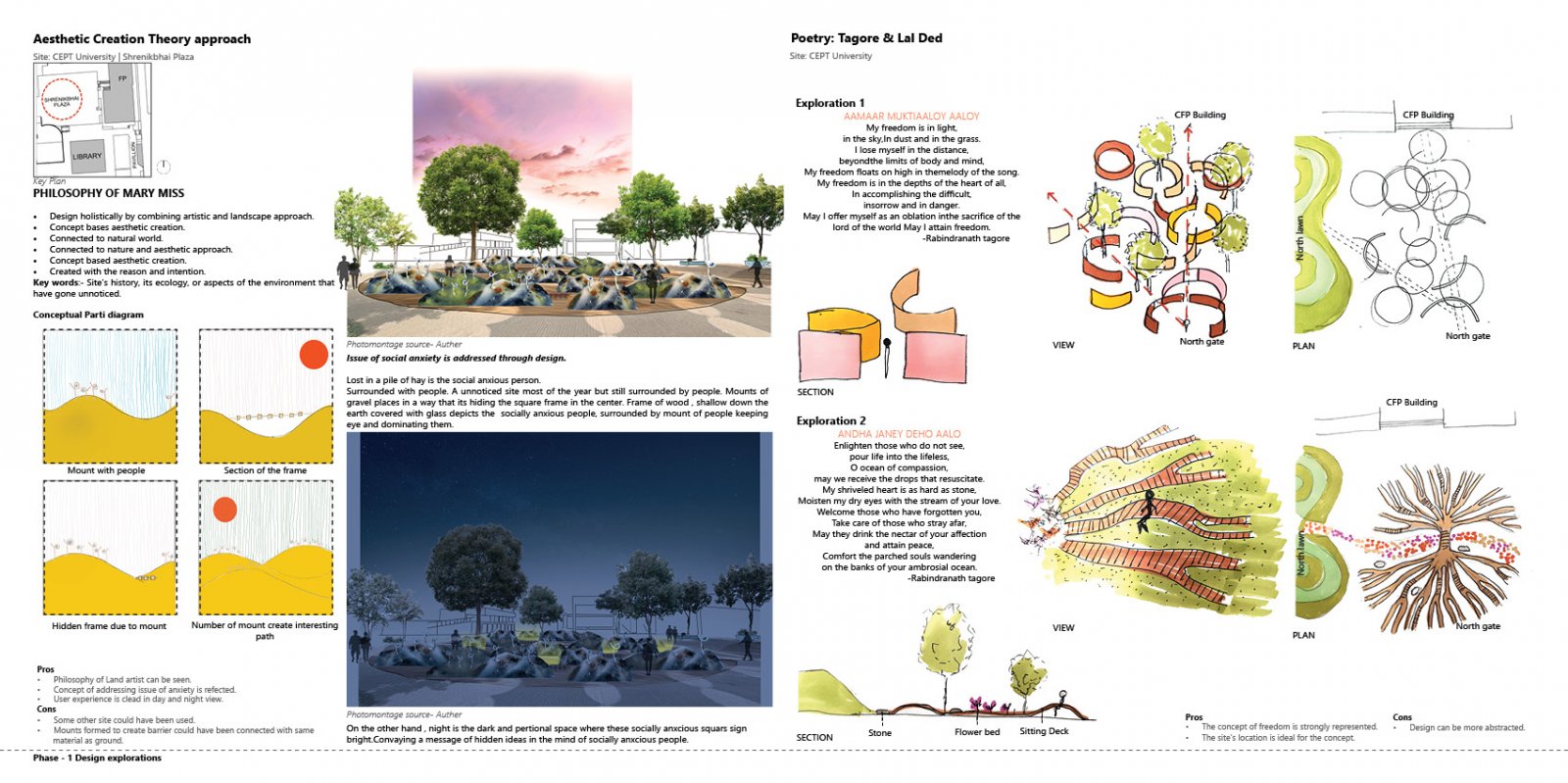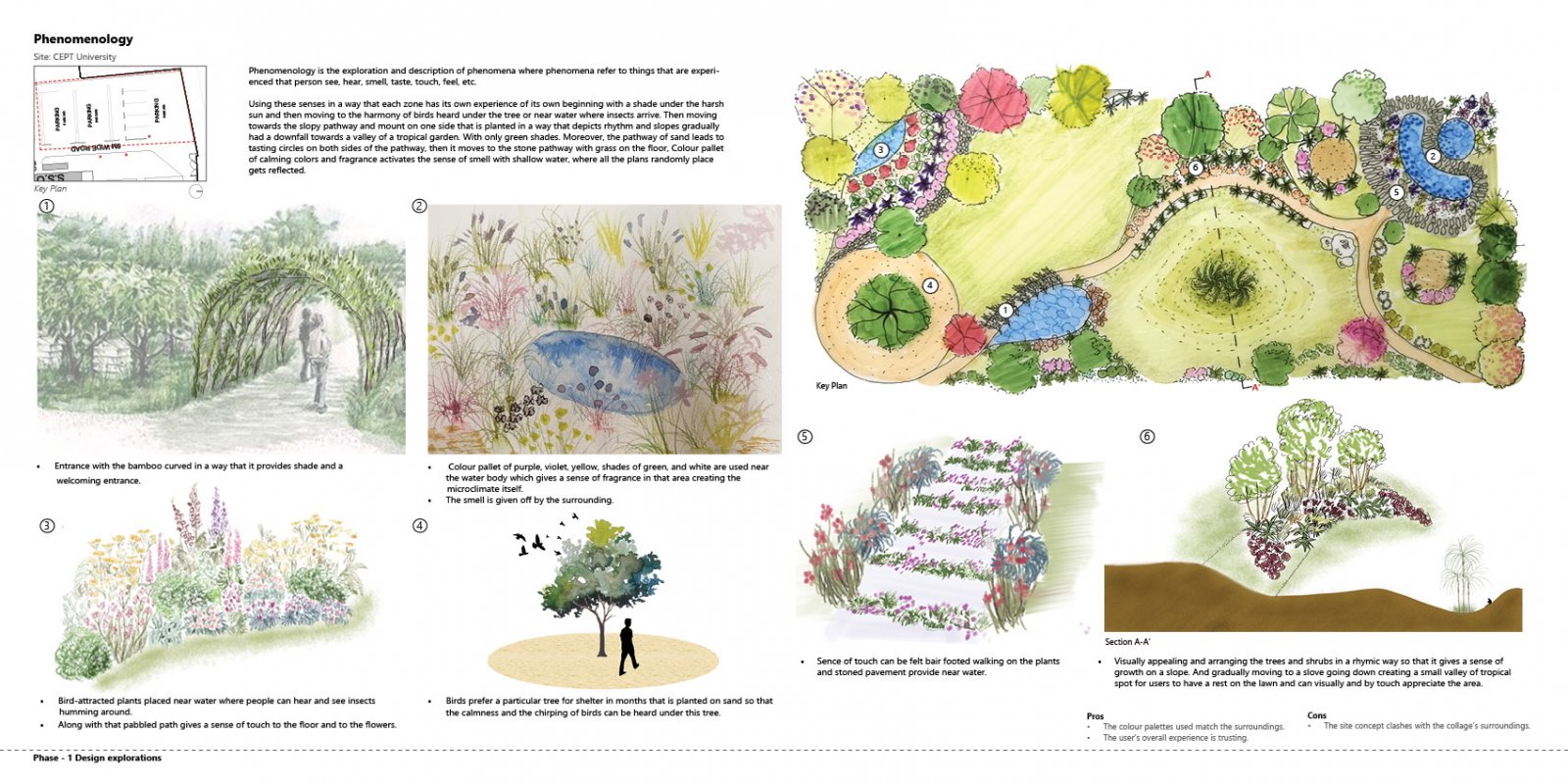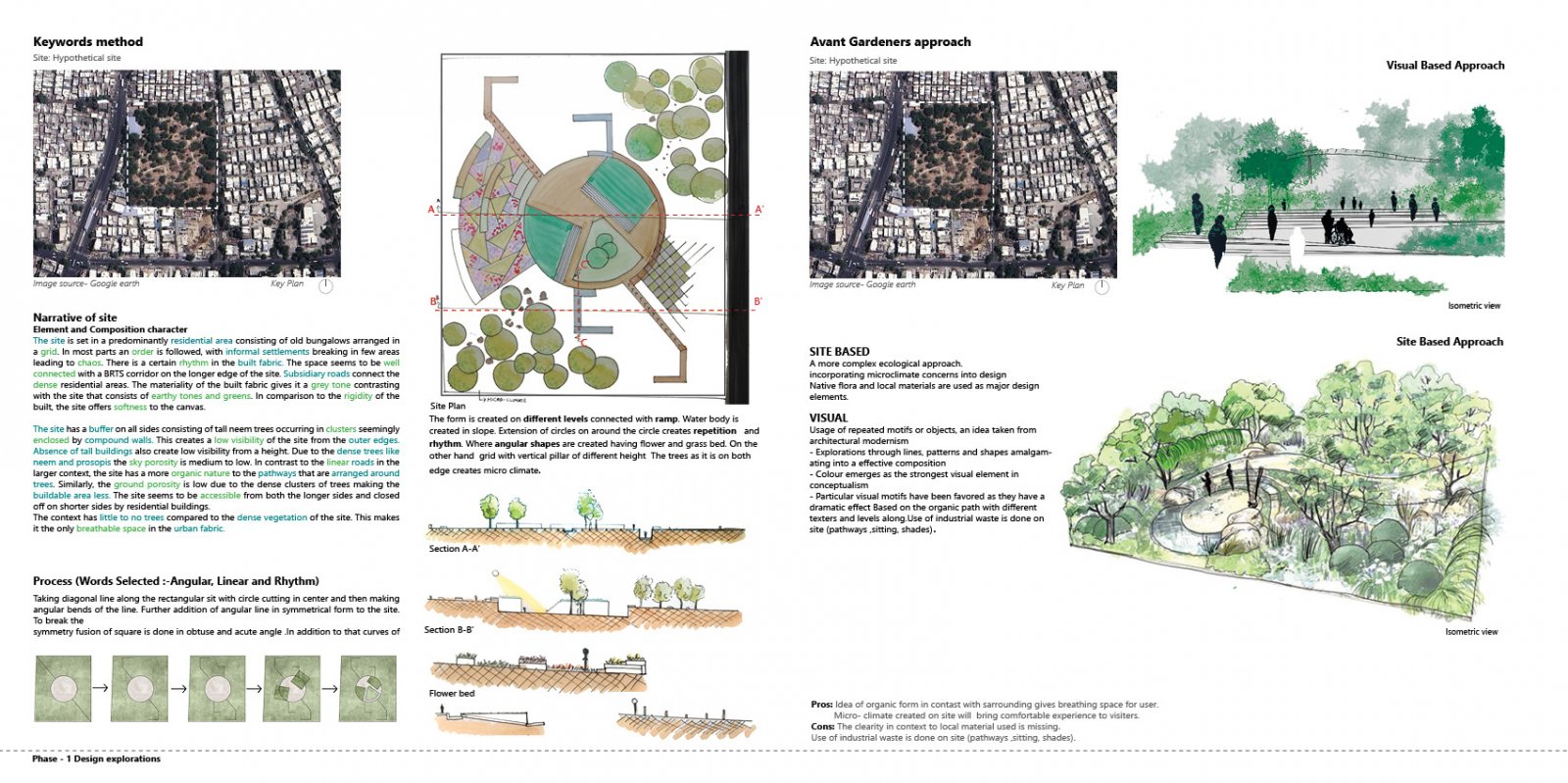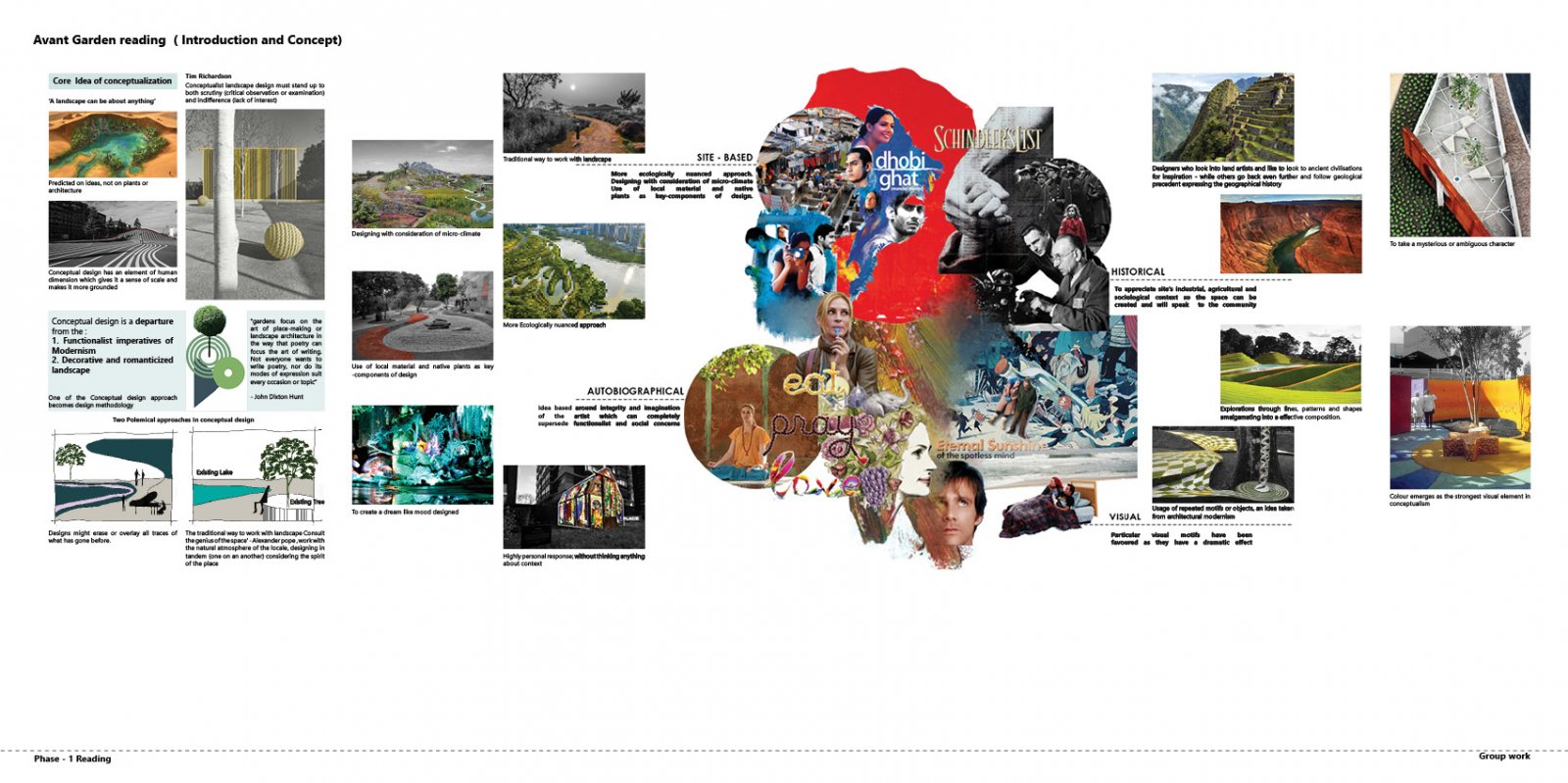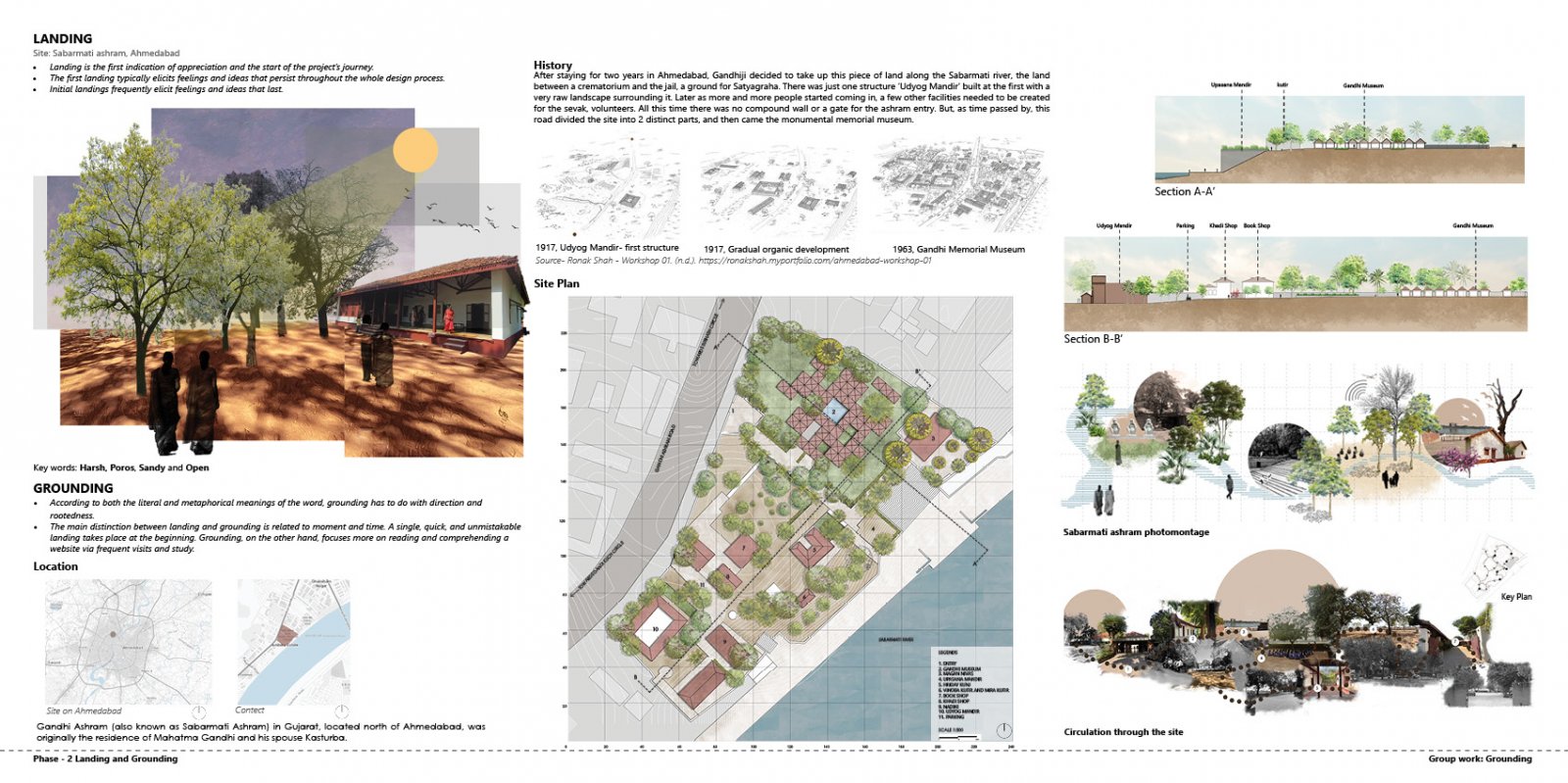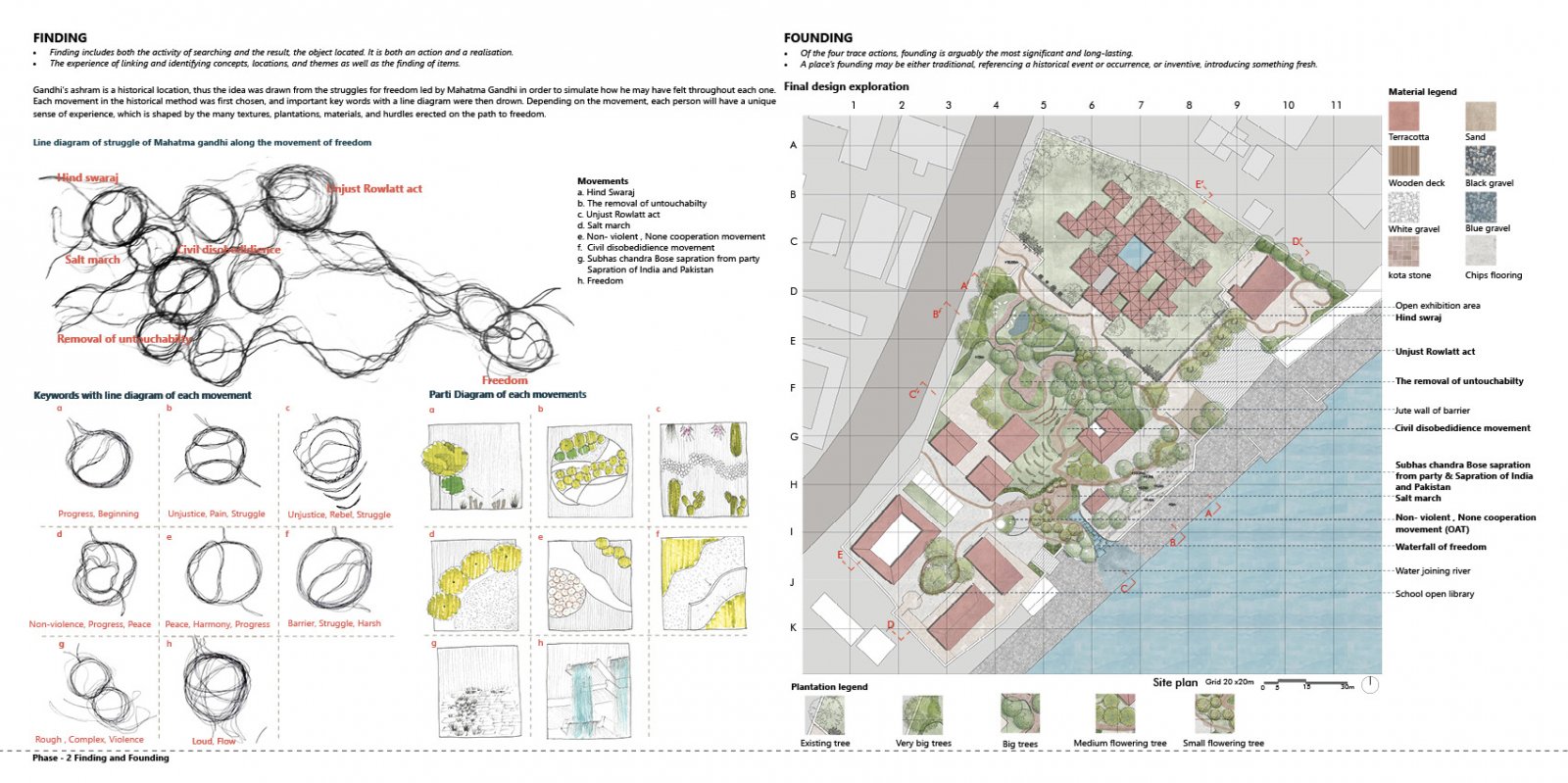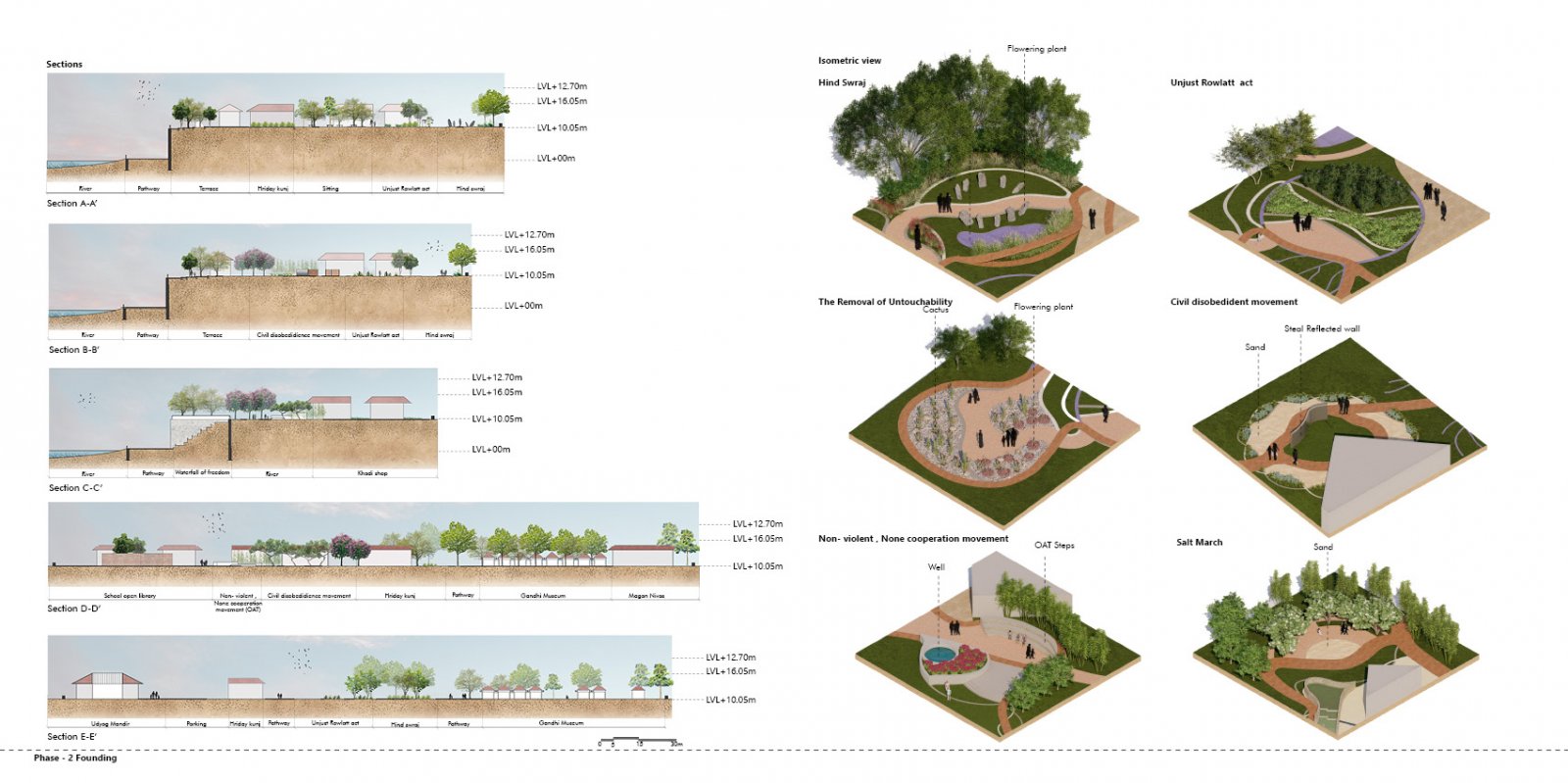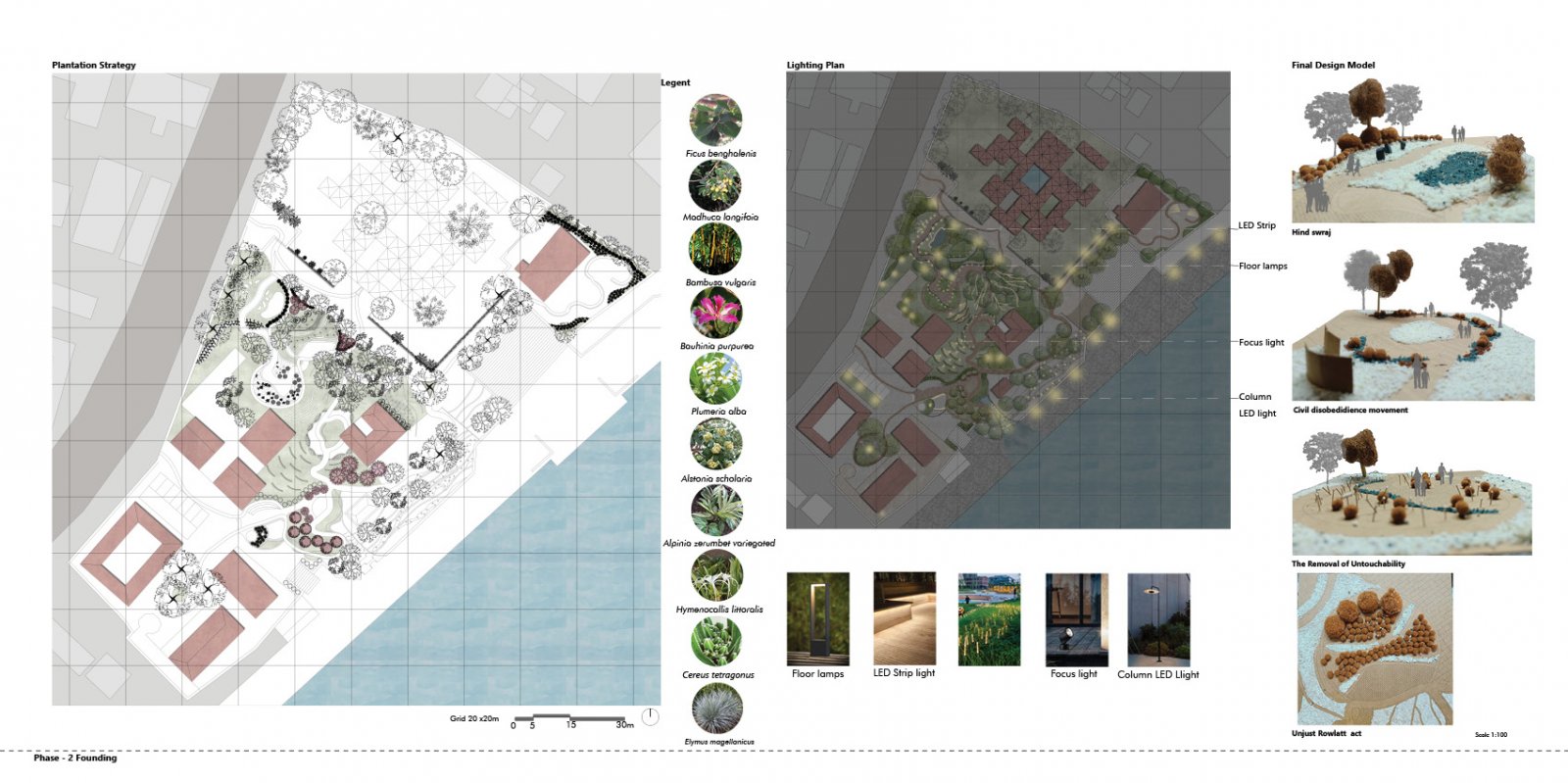Your browser is out-of-date!
For a richer surfing experience on our website, please update your browser. Update my browser now!
For a richer surfing experience on our website, please update your browser. Update my browser now!
The adventure began with a variety of readings, movie watching, haiku writing, and design creation. The most fascinating aspect was the flexibility to design anything came to your mind. The studio technique enables the student to design outside the constraints of established design rules, using their perception and imagination instead. The students’ flexibility to see the place through a new lens, one that doesn’t focus on analysis but rather on how a person may feel upon first arriving at the location that led to the more grounded art being produced as the studio project’s end product. In light of all of this, the final design focuses on each experience feature we see while on location and also uses a history-based method to further obtain the important phrases of each movement. Phenomenology is the study of sense experience through various plants, texts, and elements on use in the final design. Gandhi’s ashram is a historical location, thus the idea was drawn from the struggles for freedom led by Mahatma Gandhi in order to simulate how he may have felt throughout each one. Each movement in the historical method was first chosen, and important keywords with a line diagram were then drawn. Depending on the movement, each person will have a unique sense of experience, which is shaped by the many textures, plantations, materials, and hurdles erected on the path to freedom.
View Additional Work